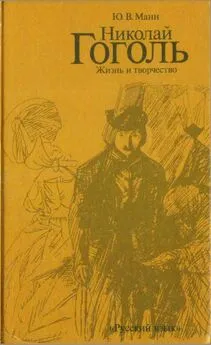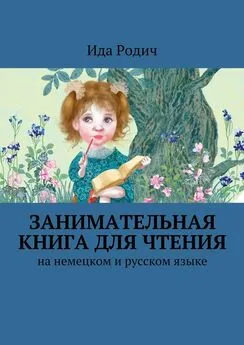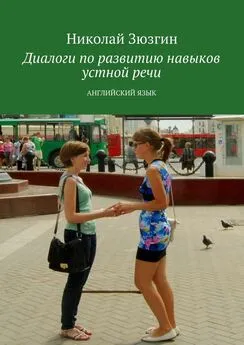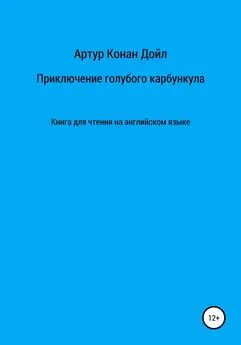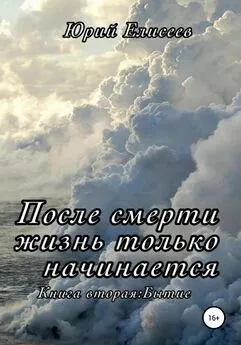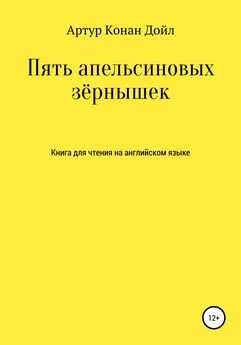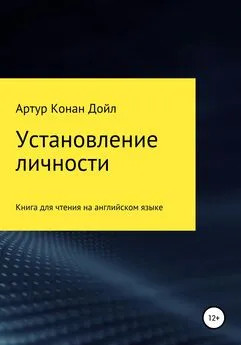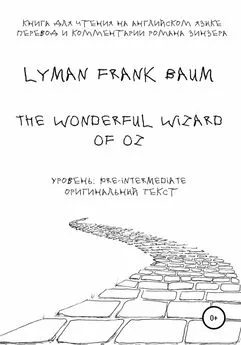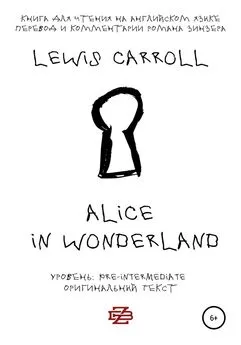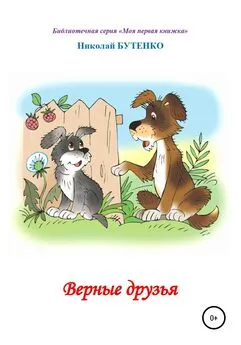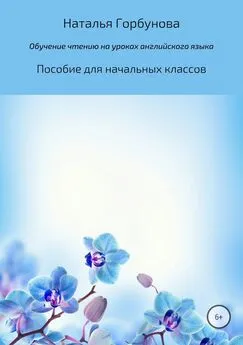Юрий Манн - Николай Гоголь. Жизнь и творчество (Книга для чтения с комментарием на английском языке)
- Название:Николай Гоголь. Жизнь и творчество (Книга для чтения с комментарием на английском языке)
- Автор:
- Жанр:
- Издательство:Русский язык
- Год:1988
- Город:Москва
- ISBN:-200-00073-4
- Рейтинг:
- Избранное:Добавить в избранное
-
Отзывы:
-
Ваша оценка:
Юрий Манн - Николай Гоголь. Жизнь и творчество (Книга для чтения с комментарием на английском языке) краткое содержание
Николай Гоголь. Жизнь и творчество (Книга для чтения с комментарием на английском языке) - читать онлайн бесплатно полную версию (весь текст целиком)
Интервал:
Закладка:
Дмитриев, Ivan Ivanovich Dmitriyev (1760–1837), Russian writer of the Sentimentalist school, author of numerous songs, elegies and fables.
Курск, town in European Russia.
станционный смотритель (hist.), postmaster.
навешать оплеухи (pop.), to beat, to give a thrashing.
городничий (hist.), governor of a town.
фельдъегерь (hist.; Ger. Feldjager), war Courier delivering important documents.
адъютант (hist.), aide-de-camp, a military or naval officer acting as assistant to a superior.
титулярный советник (hist.), official of the 9th rank (there were 14 altogether); corresponds to the military rank of captain.
a ты себе и в ус не дуешь (phras.), you are not concerned with anything.
Киреевский, Ivan Vasilyevich Kireyevsky (1806–1856), Russian philosopher, literary critic and publicist: one of the founders of the Slavophiie movement.
Киреевский, Pyotr Vasilyevich Kireyevsky (1808–1856), student of Russian folklore and literary monuments, publicist of the Slavophiie trend. Brother of I. Kireyevsky.
Бодянский, Osip Maximovich Bodyansky (1808–1877), Russian philologist and historian; one of the founders of Slavic studies in Russia.
Максимович, Mikhail Alexandrovich Maximovich (1804–1873), Ukrainian and Russian writer, literary critic, journalist and naturalist. He was a professor at Kiev University.
Баратынский, Yevgeny Abramovich Baratynsky (1800–1844), Russian poet, author of the long poems Eda, The Ball, The Gypsy Girl, and numerous lyrics.
Надеждин, Nikolai Ivanovich Nadezhdin (1804–1856), Russian critic, student of aesthetics and journalist; he was a professor at Moscow University and published the magazine Teleskop (The Telescope), supplemented by the newspaper Molva (Common Talk).
Станкевич, Nikolai Vladimirovich Stankevich (1813–1840), Russian philosopher and poet, head of an influential philosophical circle in Moscow.
Белинский, Vissarion Grigoryevich Belinsky (1811–1848), Russian critic, journalist and philosopher; author of many works devoted to Pushkin, Gogol, Lermontov and other Russian writers.
выгрузить из-под спуда (phras.), to discover something, to bring something to light.
адъюнкт-профессор (hist.), associate professor.
Гердер, Johann Gottfried Herder (1744–1803), German philosopher, writer and philologist.
Шлецер, August Ludwig von Schlozer (1735–1809), German historian and philologist who worked in Russia for several years; associate professor of the St. Petersburg Academy of Sciences.
Миллер (correct name, Мю́ллер), Johannes von Muller (1752–1809), Swiss historian.
Шиллер, Johann Christoph Friedrich von Schiller (1759–1805), German poet, philosopher and historian.
Аристофан, Aristophanes (c. 445-c. 385 В. C.), author of classical Greek plays, "the father of comedy".
бояре (hist.), boyars; big landowners, Muscovy’s aristocracy
физиогно́мия ( arch.) = физионо́мия, physiognomy; facial features, characteristic facial expression.
Дашков, Dmitry Vasilyevich Dashkov (1788–1839), man of letters and high-ranking official who held the post of Minister of Justice in 1832-39.
балагур, joker, jovial fellow.
Котляревский, Ivan Petrovich Kotlyarevsky (1769–1838), Ukrainian writer, author of the mock-heroic poem Aeneid.
Гулак-Артемовский, Pyotr Petrovich Gulak-Artemovsky (1790–1865), Ukrainian writer, author of saiirical fables, ballads and lyric poems.
Зябловский, Yevdokim Filippovich Zyablovsky (1763–1846), professor of statistics at St. Petersburg University. His courses in geography were reprinted several times.
дивчина ( Ukr .), young girl.
ижица (hist.), the last letter of the Russian alphabet as it existed before the Revolution; represented the vowel [и].
старосветский, old-fashioned, old-world.
кляузник ( from кля́уза, cavil, slander), squealer, gossiper.
земность, here: mercantile, ulterior motives.
храм Фемиды, a law court; Феми́да, Themis, is the Greek goddess of justice.
канцелярский (here, a noun), a clerk.
Адмиралтейская игла, the spire of the Admiralty building in St. Petersburg.
типаж, the totality of features characteristic of a certain human type.
детище Петра, i. e., St. Petersburg, which was founded in 1703 by Peter I.
Некрасов. Nikolai Alexeyevich Nekrasov (1821–1877), Russian poet, author of the long poems The Red-Nosed Frost, Russian Women, Who Can Be Happy and Free in Russia, and many lyric poems.
Достоевский, Fyodor Mikhailovich Dostoyevsky (1821–1881), Russian writer, author of Crime and Punishment.
The Idiot, The Brothers Karamazov, The Possessed, Raw Youth, etc.
Блок, Alexander Alexandrovich Blok (1880–1921), Russian poet, author of long poems ( Retribution and The Twelve), dramas ( The Fair-booth, The Rose and the Cross ) and many lyric poems.
Белый, Andrei Bely (pseudonym of Boris Nikolayevich Bugayev; 1880–1934), Russian poet and novelist; author of the novel St. Petersburg.
поручик (hist.), a lower officer’s rank in the tsarist army.
Григорьев, Apollon Alexandrovich Grigoryev (1822–1864), Russian literary critic and poet.
в должность (arch.), to the office, to the place of work.
"…Я сама чтобы лежала возле…", the Persian, whose Russian is faulty, mixes up grammatical forms, using the feminine verb endings instead of the masculine.
палевый, straw pink.
Панаев, Ivan Ivanovich Panayev (1812–1862), Russian writer and journalist who closely associated with V. Belinsky and N. Nekrasov
гомерическая эпопея, a composition resembilng the classical Greek epics, The Iliad and The Odyssey, attributed to Homer.
Лажечников, Ivan Ivanovich Lazhechnikov (1792–1869), Russian writer, author of the historical novels The Last Novik, or The Conquest of Livonia under Peter the Great, The Ice House, and The Infidel.
Срезневский, Izmail Ivanovich Sreznevsky (1812–1880), Russian specialist in Slavonic studies and ethnographer; member of the Russian Academy of Sciences.
светлица (arch.), the finest room of a house.
реляция (arch.), written despatch on the progress of hostilities.
Потоцкий, Nikolai Potocki (7-1651), Ukrainian hetman who fought Bogdan Khmelnitsky (see Notes to Ch. 1) and was defeated by him. Stanislaw Potocki (1579–1667), Ukrainian hetman who also fought Bogdan Khmelnitsky.
Остряница (Остраница), Ostranitsa, one of the leaders of the Cossack troops who fought the Poles. He was put to death in Warsaw in 1638.
Ефремов, Alexander Pavlovich Yefremov (1814–1876), member of Stankevich's philosophical circle and Belinsky’s friend; professor of geography at Moscow University.
Садовский, Prov Mikhailovich Sadovsky (1818–1872), actor of the Maly Theatre in Moscow who founded a famous dynasty of actors.
Булгарин, Faddei Venediktovich Bulgarin (1789–1859), Russian writer and journalist with reactionary leanings, who published the newspaper Severnaya pchela (the Northern Bee) and the magazine Syn otechestva (Son of Our Country).
Сенковский, Osip Ivanovich Senkovsky (1800–1858), Russian writer, critic, journalist and Orientalist; he edited and published the magazine Biblioteka dlya chteniya ( Reader's Library).
Греч, Nikolai Ivanovich Grech (1787–1867), Russian writer, journalist and philologist; at one time he was the copublisher of Severnaya pchela and Syn otechestva.
Павлов, Nikolai Filippovich Pavlov (1803–1864), Russian writer, poet and critic.
Шевырёв, Stepan Petrovich Shevyryov (1806–1864), Russian critic, poet, specialist in literature and a journalist; professor at Moscow University, member of the Russian Academy of Sciences.
Гофман, Ernst Theodor Amadeus Hoffman (1776–1822), German romantic writer, author of Der Goldene Topf, Klein Zaches, Meister Floh, Kater Murr, etc.
Тик, Johann Ludwig Tieck (1773–1853), German romantic writer, author of comedies ( Der Gestiefelte Kater and Der Blaubart), stories, etc.
Chapter 4
духом (coll.), very quickly, in a jiffy.
Свиньин, Pavel Petrovich Svinyin (1787–1839), Russian writer and collector of antiquities.
Бессарабия (hist.), Bessarabia area in the Dniester-Pruth interfluve. At present its principal part is incorporated
in the Moldavian SSR, and its southern part, in the Odessa Region of the Ukrainian SSR.
Соллогуб, Vladimir Alexandrovich Sollogub (1813–1882), Russian writer, author of the novel The Tarantass.
Вяземский, Pyotr Andreyevich Vyazemsky (1792–1878), Russian writer, poet and critic; he was a close friend of Pushkin.
Розен, Yegor Fyodorovich Rosen (1800–1860), Russian poet and dramatist.
фризовый (hist.), frieze, a heavy durable fabric with a rough surface.
пустить пыль в глаза ( phras .), to deceive, to produce a false impression.
завязка, an episode that introduces the plot (the opposite of denouement).
Герцен, Alexander Ivanovich Herzen (1812–1870), Russian writer, philosopher and revolutionary figure. Author of the novel Who Is to Blame? the memoirs My Past and Thoughts , the philosophical treatises Dilettantism in Science, Letters on the Study of Nature , etc.
Сосницкий, Ivan Ivanovich Sosnitsky (1794–1871), Russian actor who excelled in comedies and vaudevilles.
Каратыгин, Pyotr Andreyevich Karatygin (1805–1879), Russian comic actor. He also composed and translated vaudevilles. Brother of the great tragic actor Vasily Karatygin.
Григорьев, Pyotr Ivanovich Grigoryev (Grigoryev I; 1806–1871), Russian actor, author of comedies and vaudevilles. He adapted the second volume of Gogol’s Dead Souls for the stage under the title The Adventures of Pavel Ivanovich Chichikov.
Панаева, Avdotya Yakovlevna Panayeva (Golovacheva; 1820–1893), Russian writer, author of a famous book of reminiscences.
Смирнова, Alexandra Osipovna Smirnova, nee Rosset (1809–1882), maid of honour of the Russian empress, was on friendly terms with both Pushkin and Gogol.
Виельгорский, Mikhail Yuryevich Vyelgorsky (1788–1856), Russian statesman, patron of the arts and amateur composer.
Крылов, Ivan Andreyevich Krylov (1769–1844), Russian writer renowned for his fables.
Тургенев, Ivan Sergeyevich Turgenev (1818–1883). Russian writer, author of Sketches of a Sportsman, the novels Rudin, A Nest of the Gentry, On the Eve, Fathers and Sons, Smoke, Virgin Land and other works.
Дюр, Nikolai Osipovich Dyur (1807–1839), Russian comic and vaudeville actor, who excelled in the parts of light-minded dandies and comic old men.
Читать дальшеИнтервал:
Закладка:
